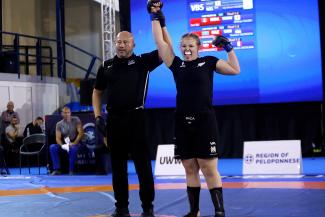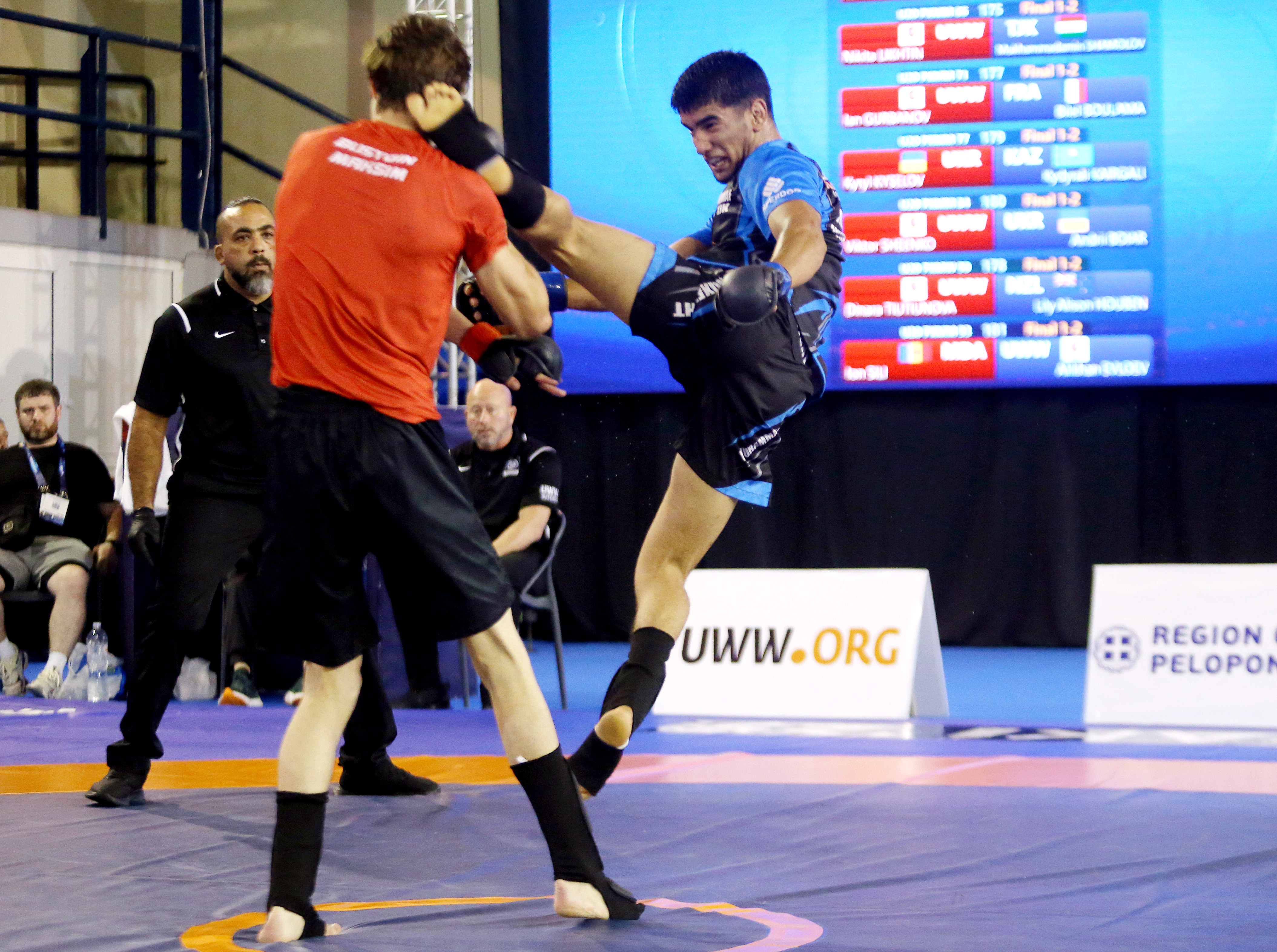Ranking Series calendar finalized, UWW approves 2kg weight tolerance
Tuesday, December 20, 2022 - 07:10 By Vinay Siwach

CORSIER-SUR-VEVEY, Switzerland (December 20) -- The United World Wrestling has defined the host for the Ranking Series in 2023 and allow a two-kilogram weight tolerance for wrestlers at each Ranking Series event starting next year.
The change was approved as the UWW Bureau met Monday to finalize the calendar for 2023 among other agendas.
Apart from confirming the four stops for the Ranking Series events, the continental championships for 2023 were also approved with New Delhi, India and Sydney, Australia confirmed as the host of respective continental championships.
Furthermore, setting up an Athletes' Entourage sub-Commission was also approved by the Bureau.
The two-kilogram weight tolerance was also put forward to the Bureau and it was readily accepted. The move will promote wrestler to compete in their preferred weight class instead of an upper weight classes in future Ranking Series events.
The opportunity for the same will be the season opener in Zagreb, Croatia with the traditional Zagreb Open accepting the status of Ranking Series. This is not the first time that the tournament will be a ranking event. The tournament has been a Greco-Roman Ranking Series in the past.
For 2023, all three styles will be conducted in the Croatian capital from February 1-5.
Like last year, the Bureau wanted to provide equal opportunities to smaller National Federations and for that it kept one Ranking Series stop in Africa. The Ibrahim Moustafa tournament will be the second Ranking Series event from February 23-26 in Alexandria, Egypt.
Bishkek, Kyrgyzstan was also approved as the third stop for the Ranking Series. The tournament will be held from June 1 to 4 before the Series travels to Budapest, Hungary for the last stop from July 13-16.
Ranking Series Calendar 2023:
1st Ranking Series: February 1-5, Zagreb, (CRO)
2nd Ranking Series: February 23-26, Alexandria (EGY)
3rd Ranking Series: June 1-4, Bishkek (KGZ)
4th Ranking Series: July 13-16, Budapest (HUN)
In addition to the four Ranking Series stops, the Bureau also added the Asian Games and Pan-American Games as tournaments that will offer ranking points to the wrestlers.
Asian Games will be held in Hangzhou, China from September 23 to October 8 while the Pan-Games will be in Santiago, Chile from November 1-4.
The two Games will hold the same ranking points as the continental championships.
Despite the addition of Regional Games in the Ranking Series, only the best six performances of a wrestler will be considered for the end-of-the-year rankings.
For each wrestler, only the points obtained at the World Championships, plus his/her other five best results at the ranking events (including the continental championships and two Games) of the year are counted towards the determination of the Best Athletes of the Year title.
The following competitions will determine the ranking of a wrestler:
Four Ranking Series
Senior Continental Championships
Senior World Championships or Olympic Games
2023 Asian Games (eligible wrestlers)
XIX Pan-American Games (eligible wrestlers)
Continental Championships, Entourage sub-Commission confirmed
The Asian Championships will return to New Delhi, India for the second time in three years as it was approved as the host of the 2023 edition of the tournament. The Indian capital previously hosted the tournament in February 2020.
Sydney, Australia was awarded the Oceania Championships for 2023 as the wrestlers from the region prepare for the 2023 World Championships and earn a quota to qualify for the Paris Olympics.
In line with the International Olympic Committee, UWW will also set up an Entourage sub-commission within the Athletes’ Commission. Made of four members of other existing commissions, this group will be responsible for advising and providing details to UWW for the improvement of wrestlers in relation to their parents, coaches, managers, technical officials, sponsors, media and all other stakeholders that support and work directly with and for them.
The Bureau also agreed to hold an Extraordinary Congress in 2023 to introduce constitutional changes. It is yet to be determined whether the Congress will be virtual or hybrid.
Note: The second Ranking Series was originally awarded to Cairo but has been updated to Alexandria.


 Muhammadkabir NAZARZODA (TJK) won gold medal in the 62kg weight category. (Photo: United World Wrestling)
Muhammadkabir NAZARZODA (TJK) won gold medal in the 62kg weight category. (Photo: United World Wrestling)
Share your thoughts.
Comments